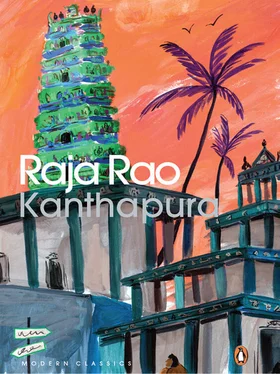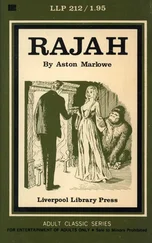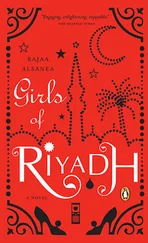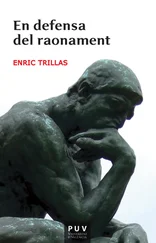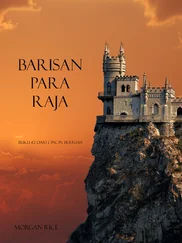Raja Rao - Kanthapura
Здесь есть возможность читать онлайн «Raja Rao - Kanthapura» весь текст электронной книги совершенно бесплатно (целиком полную версию без сокращений). В некоторых случаях можно слушать аудио, скачать через торрент в формате fb2 и присутствует краткое содержание. Год выпуска: 2014, Издательство: Penguin, Жанр: Классическая проза, на английском языке. Описание произведения, (предисловие) а так же отзывы посетителей доступны на портале библиотеки ЛибКат.
- Название:Kanthapura
- Автор:
- Издательство:Penguin
- Жанр:
- Год:2014
- ISBN:нет данных
- Рейтинг книги:3 / 5. Голосов: 1
-
Избранное:Добавить в избранное
- Отзывы:
-
Ваша оценка:
- 60
- 1
- 2
- 3
- 4
- 5
Kanthapura: краткое содержание, описание и аннотация
Предлагаем к чтению аннотацию, описание, краткое содержание или предисловие (зависит от того, что написал сам автор книги «Kanthapura»). Если вы не нашли необходимую информацию о книге — напишите в комментариях, мы постараемся отыскать её.
Kanthapura — читать онлайн бесплатно полную книгу (весь текст) целиком
Ниже представлен текст книги, разбитый по страницам. Система сохранения места последней прочитанной страницы, позволяет с удобством читать онлайн бесплатно книгу «Kanthapura», без необходимости каждый раз заново искать на чём Вы остановились. Поставьте закладку, и сможете в любой момент перейти на страницу, на которой закончили чтение.
Интервал:
Закладка:
Then Vasudev turns to Rangamma and says, ‘Why not start our bhajans again, sister? We shall keep it going as though Moorthy were not in prison,’ and Seenu says, ‘So we should.’ But Moorthy said to Sankar, ‘Let them prepare themselves for the fight. But no processions or bhajan lest the police fall on them!’ and Vasudev says, ‘No, if Moorthy were here he would start the bhajans again,’ and Rangamma says, ‘So I think, too,’ and we all say, ‘That will be fine.’ And on the Saturday that followed, Seenu went and blew the conch from the promontory, and men rushed to the temple, men and old women and children and all, and we all said, ‘Now it is going to be bright again in Kanthapura,’ and we knew not how to hold our hearts within our breasts. Cymbal, conch, and camphor, clapping hands and droning drums, the perfume of the sandal paste, flowers in the hair, and in our eyes, Siva’s eyes.
Changing he changes not,
Ash-smeared, he’s Parvati’s sire,
Moon on his head,
And poison in his throat,
Chant, chant, chant the name of Eesh,
Chant the name of Siva Lord!
12
In Vaisakh men plough the fields of Kanthapura. The rains have come, the fine, first-footing rains that skip over the bronze mountains, tiptoe the crags, and leaping into the valleys, go splashing and wind-swung, a winnowed pour, and the coconuts and the betel nuts and the cardamom plants choke with it and hiss back. And there, there it comes over the Bebbur hill and the Kanthur hill and begins to paw upon the tiles, and the cattle come running home, their ears stretched back, and the drover lurches behind some bel tree or pipal tree, and people leave their querns and rush to the courtyard, and turning towards the Kenchamma temple, send forth a prayer, saying, ‘There, there, the rains have come, Kenchamma; may our houses be white as silver,’ and the lightning flashes and the thunder stirs the tiles, and children rush to the gutter-slabs to sail paper boats down to Kashi. And Agent Nanjundia’s wife, Chennamma, and Subba Chetty’s Putti are already in the street, filtering the waters for the gold dust; and Priest Rangappa opens his book bundle and looks into the calendar and says, ‘Oh, tomorrow is the rohini star, and people will yoke their bulls to the plough.’ And, umbrella in hand, there is Rangè Gowda, a coconut and betel leaves in his arms, and he goes to Priest Rangappa and says, ‘And when, learned sir?’ and Rangappa looks this side and that, for the beadles were no more Rangè Gowda’s, and the village was no more Rangè Gowda’s, but the voice it was for ever Rangè Gowda’s, and so Rangappa looks at the ground and says, ‘Why, tomorrow, Rangè Gowda.’ And Rangè Gowda goes home and swears at the beadles, and Beadle Chenna says, ‘And when is it, Patel?’—’Why, tomorrow, you rat of a woman,’ and Beadle Chenna goes home and sleeps, and when the frogs have stopped croaking there is Chenna with his drum in his hand crying, ‘Oh, Ohé, this morning the plough will be blessed,’ and people say, ‘Oh, this morning already,’ and Satanna rises up and says, ‘Why, my right eye winks: we shall have a grand harvest,’ and Weaver Chennayya rushes up and washes himself, and puts oil on his hair, and his wife goes to the backyard to pick flowers in the garden, and Chandrayya puts on the velvet coat he had made in town when he won his case against Sidda, and Ramayya opens his eyes wide and looks between the tiles and says, ‘Oh, Sun God, give us a fine harvest this year and I’ll pay up Bhatta’s three hundred seventy-five rupees, and marry my last daughter and offer to Kenchamma the goat that I promised her for my woman’s cure,’ and Pariah Timmayya says, ‘Oh, why must I wake? My yoke is without bulls, and my field without grain,’ but his wife, strong woman that she is, she says, ‘Go, man, the gods are not so unkind,’ and Timmayya grumbles and groans, and with neither flower nor caste mark he goes into the street — while men and boys drive the bulls out, ploughs on their shoulders and whips in their hands, and when they come to the river, they rub the bulls and wash them and tie flowers to their horns, and ‘He, he,’ they shout as they drive them to the temple courtyard.
‘He, he,’ the rains have sunk into the earth, and Gap-tooth Siddayya drives his stick into the earth and says, ‘Why, she has gone four fingers deep,’ and they all say, ‘Why, it rained as though the goddess had asked for it.’ And then, when the day is all wide and the men and the bulls are all come, there comes Priest Rangappa with his holy jug on his head and his wet clothes in his hands, and says, ‘You are all here! he?’ and they answer, ‘Yes, learned sir,’ and he opens the door, pulls wide the holy curtain, bathes the goddess and adorns her, and Trumpet Lingayya and Pipe Ramayya are there, and they stand by the champak and they blow the horn to the east and the west and the north and the south, and from the east and the west and the north and the south, in the ringing rain-cleared air, there comes back the rasp and roar of the horn, and people are seen rushing with their ploughs and bulls, and the bells of the yokes go ringing through the temple grove. They are coming, Rachanna and Madanna, and even Potter Ranga and Pariah Sidda and Timmayya’s son Bhima, and Mota and Tippa, who have neither bulls nor fields, they, too, come with flowers in their hair. And Priest Rangappa says with his gruff voice, ‘And you are all ready, you sons of my woman?’ and they all cry out, ‘Of course! Of course!’—’And where is he?’ and they answer, ‘The Patel is coming, there he is!’ and the Patel is seen coming on his horse, his filigree shawl thrown over his shoulders, his durbar turban on his head and his English reins in his hands, and Mada running behind him, as though collector and governor could wipe the saliva off their mouths, but never would Rangè Gowda be anything but Patel in Kanthapura. And when he reaches the Black-serpent’s-anthill he gets down, throws the reins into Mada’s hands and walks up unhurriedly to the courtyard. And Priest Rangappa is heard to ring the bell in the sanctum, and all eyes grow dim and the eyelids droop and everyone says, ‘There, there the goddess is going to show her face,’ and they tremble and press against each other, and when the legs itch they do not scratch, when the waters drip they do not shake, and then suddenly the curtain is drawn, and Mother Kenchamma is there straight, bright and benign, and the candelabras weave their lights around her, and they say, ‘Maybe, she has passed a good night!’ Then Priest Rangappa lights the camphor and lifts it up to her jewelled face and takes it round her diamond hands and ruby feet, and then flowers quietly roll down her face, and they all say, ‘There, she has sent us her blessings. O Kenchamma, give us a fine harvest and no sickness, Kenchamma, Kenchamma, goddess,’ and even the bulls stand without waving their tails. And then Rangappa comes with a pot of holy water and splashes it now on this bull and now on that, and they shiver and slouch back, waving their bells to the goddess, and the camphor and the sandal are brought, and men take the camphor and the sandal, and they all look up to see if the sun is visible somewhere, and there, beyond the temple grove over the Horse-head hill, there is a ruddy streak as wide as a sari hem, and they tremble and fold their hands and whisper. And then Rangè Gowda whispers to Priest Rangappa and Priest Rangappa to Subbè Gowda, ‘Why, yours are the youngest bulls. You will tie them to the yoke,’ and he is so proud, and he comes forward to his three-year-old Amrithamahal bulls that he had bought at the Santur cattle fair, and the plough is clean and sharp, and everybody looks up again and again for the goddess’ vehicle, an eagle, to show itself, and as Priest Rangappa goes on chanting the hymns and ringing the bell, there he comes from over the temple spire, there he comes, the feather of God, and turns once, twice, thrice round the temple and the men and the bulls, and the horns shout across the grove and the valley to the mountaintops. And Priest Rangappa breaks a coconut on the rock and they throw flowers and coloured rice as Subbè Gowda cries out, ‘Hèhè, hèhè, ho!’ and the plough cuts the earth and spatters the clods, and the farther they go the lighter does it cut. And when the serpent field and the village common and the tank gardens are done, Subba lifts the plough right out, and the bulls run the faster, and they cry, ‘Hoyla! Hoyla!’ and throwing the flowers and splashing the rice, they rush past the Skeffington Estate, and Bhatta’s Devil fields, and the riverbank, and once the temple tank is reached, Subba staggers and swirls round, and going down the mound comes straight into the courtyard, and he stops — and they all stop and cough and wipe away their sweat, while Temple Rangappa breaks a coconut again and offers it to the bulls. And they all throw puffed rice at each other and they offer Rangappa a nickel coin each, and then Rangappa goes in and comes out with a silver pot of holy water, and he throws a handful in each of the eight directions, and they say, ‘Now, we can till the earth,’ and with the sacred flower behind their ears, and their hearts rich with holiness, the women rush back to their homes and men to their fields, crying, ‘Hoye! Hoye! Hoyeee-la!’
Читать дальшеИнтервал:
Закладка:
Похожие книги на «Kanthapura»
Представляем Вашему вниманию похожие книги на «Kanthapura» списком для выбора. Мы отобрали схожую по названию и смыслу литературу в надежде предоставить читателям больше вариантов отыскать новые, интересные, ещё непрочитанные произведения.
Обсуждение, отзывы о книге «Kanthapura» и просто собственные мнения читателей. Оставьте ваши комментарии, напишите, что Вы думаете о произведении, его смысле или главных героях. Укажите что конкретно понравилось, а что нет, и почему Вы так считаете.
